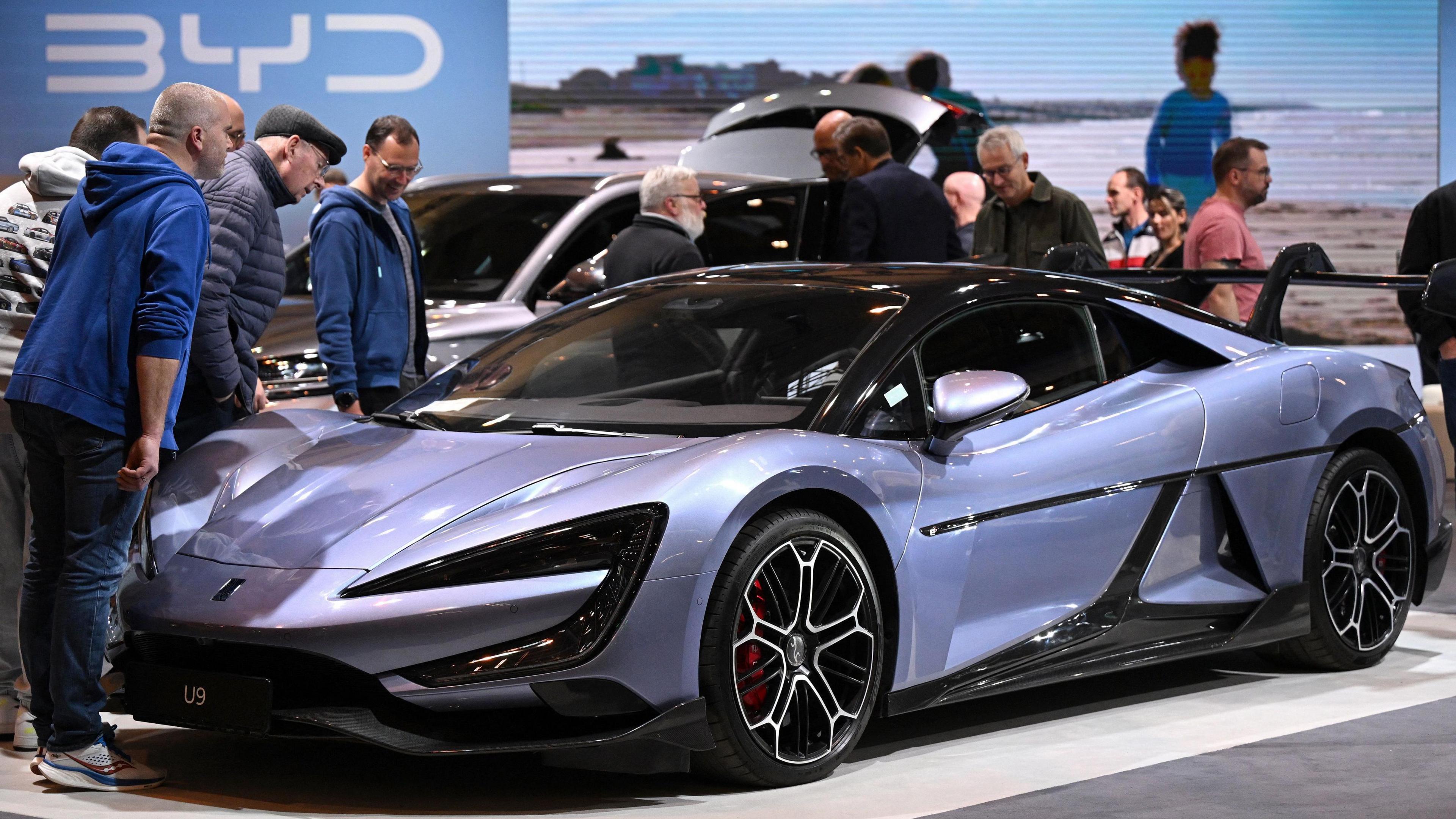Tesla sales stall as China's BYD closes in

The Chinese EV maker saw record sales in December
- Published
Tesla sales fell last year for the first time in more than a decade, as demand faltered and rivals gained pace.
The company, led by billionaire Elon Musk, delivered almost 1.79 million cars last year, down about 1% from 1.8 million in 2023.
This comes despite the company lowering prices repeatedly last year in a bid to woo buyers and hold on to its rank as the world's top-selling maker of electric vehicles (EVs).
China's BYD, however, looks set to close the gap after reporting 1.76 million EV sales in 2024.
The Shenzhen-based firm's total vehicle sales jumped more than 41% in 2024, year-on-year, to more than 4.2 million.
The surge was powered mainly by sales of its hybrid cars.
BYD sells 90% of its cars in China, where it has been extending its lead over foreign brands including Volkswagen and Toyota.
It has benefited from a rise in car sales in its home market, as intense competition drove down prices and government subsidies encouraged consumers to replace their old cars with EVs or other more fuel efficient options.
Tesla also counts China as a key market, but it has lost ground to rivals as the price war rumbles on.
Demand for electric vehicles has also softened in other regions, such as the US and Europe, creating challenges for many carmakers.
Volkswagen, Ford and General Motors were among the companies that cut sales targets or decided to delay investments in EV technology last year.
At Tesla, its boss Elon Musk has blamed weaker sales in part on the jump in borrowing costs since 2022, which has made it more expensive to buy.
Analysts have also pointed to increased competition and questions about the brand, as Musk deepens his political involvement, which has been described as controversial.
Tesla sales slumped in the first half of 2024 before starting to pick up again. In the final three months of 2024, it delivered about 495,000 cars, up 2% year-on-year and a quarterly record.
But the firm's share price, which surged more than 60% last year, fell 5% in morning trade, as the figure came in below the roughly 500,000 forecast by analysts.
"If you don't meet expectations, it can be pretty tough out there," said Christopher Carey of the Carnegie Investment Council.
Last month, Honda and Nissan confirmed that they were holding merger talks, as the two Japanese firms seek to fight back against competition from the Chinese car industry.
Earlier in the month, the boss of car making giant Stellantis, Carlos Tavares, quit with immediate effect following a boardroom clash.
His abrupt exit from the company - which owns brands including Vauxhall, Jeep, Fiat, Peugeot and Chrysler - came two months after Stellantis issued a profit warning.
Some governments have stepped in to protect domestic companies.
In October, European Union tariffs of up to 45.3% on imports of Chinese-made EVs came into force across the trade bloc.
The US has also imposed a 100% duty on EVs from China and President-elect Donald Trump is expected to impose further tariffs on imports.
BYD has still been expanding its foothold in emerging economies.
But last month, it faced a setback in Brazil - its largest overseas market - with authorities halting the construction of a BYD factory, saying workers lived in conditions comparable to "slavery".
BYD said it had cut ties with the construction firm involved and remained committed to a "full compliance with Brazilian legislation".